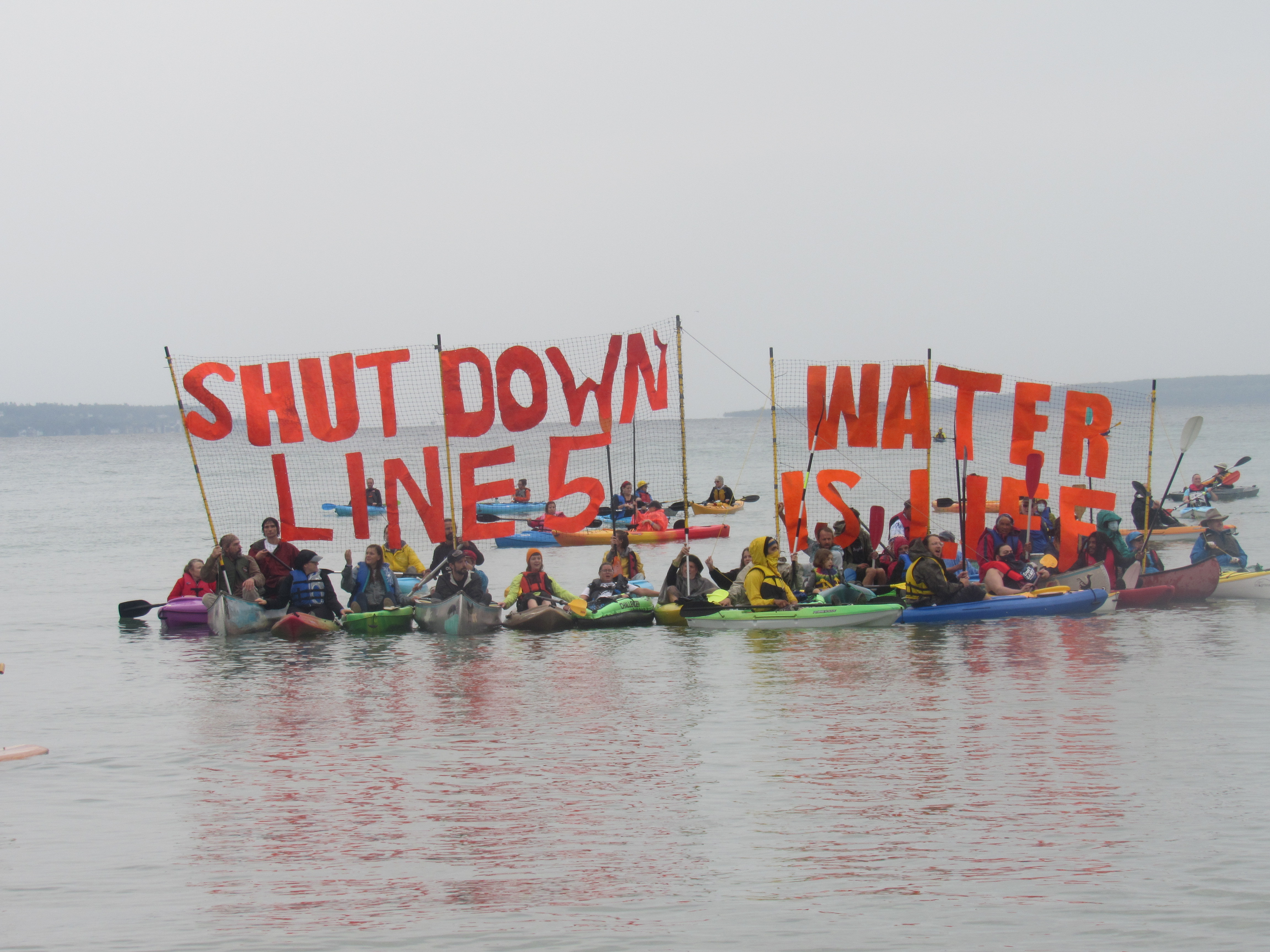
- Details
- By Native News Online Staff
Four Michigan tribes filed notice on Friday that they will appeal the Michigan Public Service Commission’s (MPSC) recent disastrous approval of a permit for Canadian oil giant Enbridge to build the Line 5 tunnel project beneath the Straits of Mackinac. Opening briefs will be submitted with MPSC in early 2024.
The Bay Mills Indian Community, Grand Traverse Band of Ottawa and Chippewa Indians, Little Traverse Bay Band of Odawa Indians, and Nottawaseppi Huron Band of the Potawatomi have lived on the lands of present-day Michigan since time immemorial, and they have vigorously opposed the Line 5 tunnel project before the MPSC.
"The MPSC made a bad decision, plain and simple. Although we fought to be heard, they put on their blinders and chose to ignore the critical perspective of Tribal Nations throughout the Great Lakes. Indigenous communities have not once been consulted since 1953 when this pipeline was first constructed. Let me be clear: Line 5 remains a threat to not only the tribes, but anyone and everyone who utilizes the Great Lakes. The question is not if the pipeline will leak, it is when," Bay Mills Indian Community President Whitney Gravelle said in a statement.
President Gravelle continued:
"Studies show that Line 5 could be decommissioned with almost no impact on jobs, gas prices, or fuel supply. Yet the MPSC did not even pause to ask if we still need this pipeline. Instead, they approved a permit to extend the life of Line 5 for another century. They are prolonging the danger of another oil spill in the Great Lakes, the source of 84 percent of North America’s surface freshwater. The tunnel project is based on a flawed design that has never been tried anywhere else and would produce a mountain of waste rock as tall as a twenty-story building and as long as a football field. Worst of all, it would perpetuate the transfer of 23 million gallons of oil per day just when we need to switch to clean energy sources. The MPSC’s decision is a disaster for all of us."
 Make A Donation Here
Make A Donation Here
"It’s important to remember that Enbridge does not yet have the final permit they need from the US Army Corps of Engineers to build the tunnel project. As we appeal the MPSC’s disastrous decision, we also demand and expect that the Army Corps conduct a thorough and meaningful environmental impact statement and uphold the treaty trust responsibilities of the United States. We cannot allow history to repeat itself through the destruction of sacred land for private profit."
Enbridge’s proposed tunnel project is opposed by multiple Tribes, businesses, and environmental groups. Line 5 is currently operating in violation of a shutdown order from the Governor of Michigan and in unlawful trespass on the reservation of the Bad River Band of Lake Superior Chippewa in Wisconsin.
The Native American Rights Fund and Earthjustice represent the Bay Mills Indian Community.
More Stories Like This
Gwich'in Tribal Governments Submit Comments Challenging Fish and Wildlife Service's Inadequate Environmental Review of Arctic Refuge Snow RoadRappahannock Tribe Challenges 9M-Gallon Water Plan
Feds release draft long-term plans for Colorado River management
Apache Leader Walks 60 Miles to Court Hearing That Will Decide Fate of Sacred Oak Flat
Rappahannock Tribe Raises Sovereignty and Environmental Concerns Over Caroline County Water Permit
Help us defend tribal sovereignty.
At Native News Online, our mission is rooted in telling the stories that strengthen sovereignty and uplift Indigenous voices — not just at year’s end, but every single day.
Because of your generosity last year, we were able to keep our reporters on the ground in tribal communities, at national gatherings and in the halls of Congress — covering the issues that matter most to Indian Country: sovereignty, culture, education, health and economic opportunity.
That support sustained us through a tough year in 2025. Now, as we look to the year ahead, we need your help right now to ensure warrior journalism remains strong — reporting that defends tribal sovereignty, amplifies Native truth, and holds power accountable.
 The stakes couldn't be higher. Your support keeps Native voices heard, Native stories told and Native sovereignty defended.
The stakes couldn't be higher. Your support keeps Native voices heard, Native stories told and Native sovereignty defended.
Stand with Warrior Journalism today.
Levi Rickert (Potawatomi), Editor & Publisher

